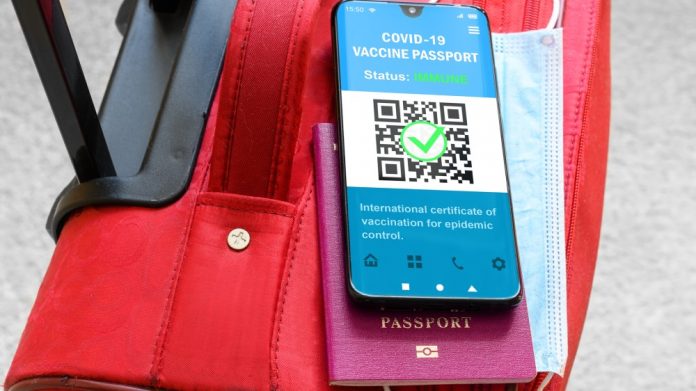All EU member states will accept the digital certificates proving vaccination, negative test result or recovery from a COVID infection.
The European Parliament has given its final green light to the EU Digital COVID Certificate,
It should facilitate free movement and contribute to restrictions being lifted gradually in a coordinated manner.
It should apply from 1 July 2021 and be in place for 12 months.
Affordable and accessible testing is encouraged: €100 million in EU funds to purchase tests.
The EU digital COVID Certificate package will facilitate travel within the EU and contribute to the economic recovery.
It will be issued free of charge by national authorities and be available in either digital or paper format containing a QR code.
The document will certify that a person has been vaccinated against COVID-19, has a recent negative test result or has recovered from the infection. In practice, these will be three distinct certificates.
A common EU framework will make certificates interoperable and verifiable across the European Union, as well as prevent fraud and forgery.
The system will apply from 1 July 2021 and be in place for 12 months. The certificate will not be a precondition for free movement and will not be considered a travel document.
MEPs secured an agreement that EU states will not be able to impose additional travel restrictions on certificate holders -such as quarantine, self-isolation or testing – unless they are necessary and proportionate to safeguard public health. Scientific evidence, including epidemiological data published by the European Centre for Disease Prevention and Control (ECDC) will have to be taken into account. The measures should be notified if possible 48 hours in advance to other member states and the Commission, and the public should be given 24 hours’ notice.
EU states are encouraged to ensure that testing is affordable and widely available. At the request of the Parliament, the Commission promised to mobilise €100 million under the Emergency Support Instrument so that member states can purchase tests to issue EU digital COVID test certificates.
All EU countries must accept vaccination certificates issued in other member states for vaccines authorised by the European Medicines Agency (EMA). It will be up to the member states to decide whether they also accept certificates for vaccines authorised following national authorisation procedures or for vaccines listed by the World Health Organisation (WHO) for emergency use.
All personal data has to be processed in line with the General Data Protection Regulation. Certificates will be verified offline and no personal data will be retained.
The EU Digital COVID Certificate will function from 1st July, and will ensure safe and coordinated travel this summer. EU states are encouraged to refrain from imposing further restrictions, unless strictly necessary and proportionate, and it is reassuring that some are already issuing the certificate.
The text will now have to be formally adopted by the Council and published in the Official Journal, for immediate entry into force and application from 1 July 2021.
The European Commission is discussing with the USA and the United Kingdom the recognition of the COVID-19 travel certificate that will come into force in July in the EU. Discussions with other counties are starting.
The aim is that the certificate will facilitate free movement in the 27 EU member states and, when it is possible, open the borders with the UK and the USA for non-essential travel.
Before the final adoption of the legal text supporting this certificate, Brussels is finalising new rules at EU level on how to lift restrictions.








 ©2024 All rights reserved LaingBuisson
©2024 All rights reserved LaingBuisson 


